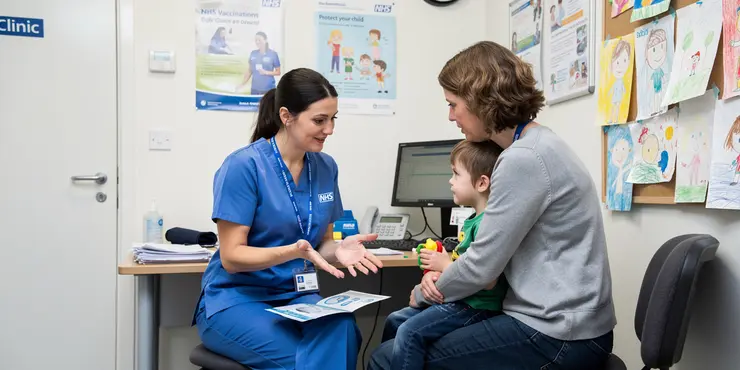
Find Help
More Items From Ergsy search
-
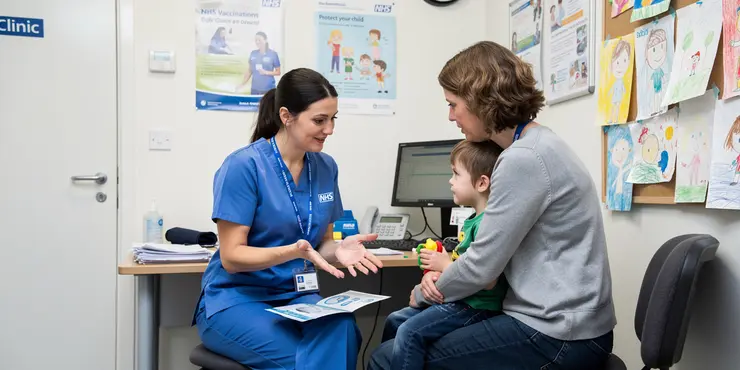
Can vaccines cause the diseases they protect against?
Relevance: 100%
-
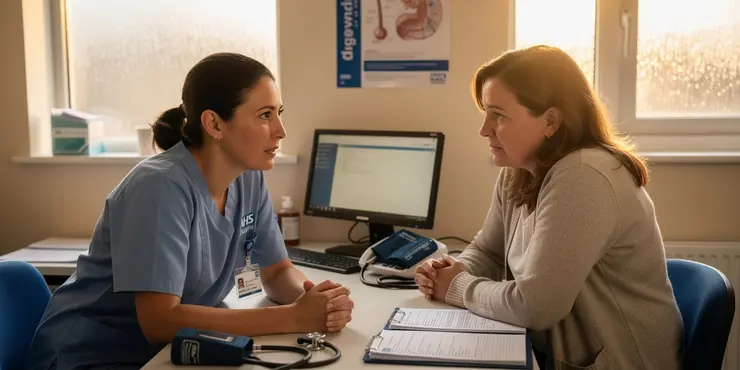
Is there a vaccine for Lyme disease?
Relevance: 80%
-
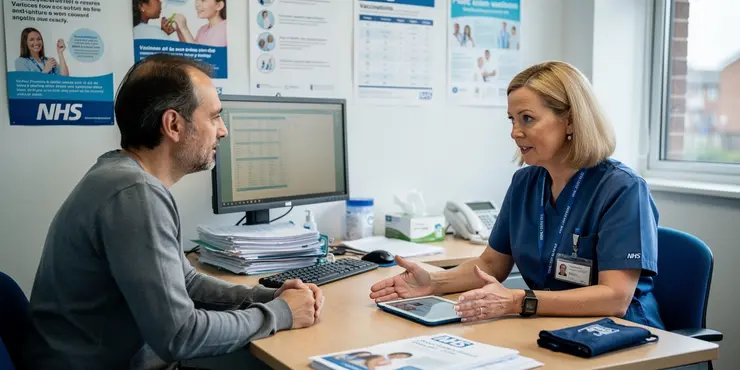
Do vaccines protect against the Stratus variant?
Relevance: 73%
-
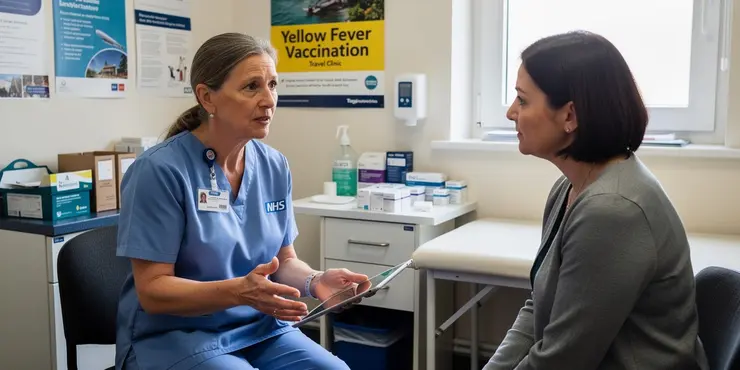
Are any vaccines available in the UK for mosquito-borne diseases?
Relevance: 72%
-
Does the flu vaccine protect against COVID-19?
Relevance: 71%
-
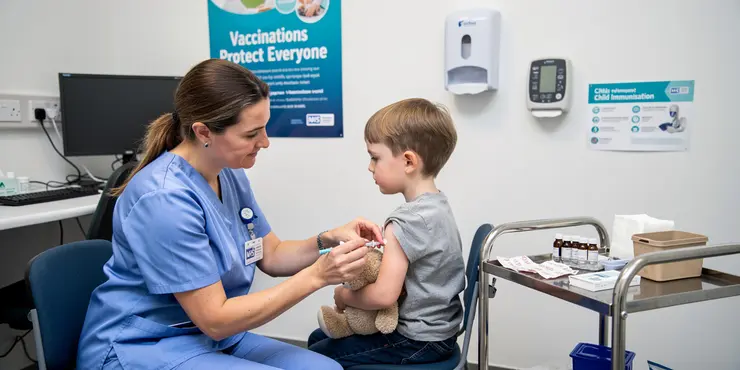
Why are vaccines important?
Relevance: 64%
-
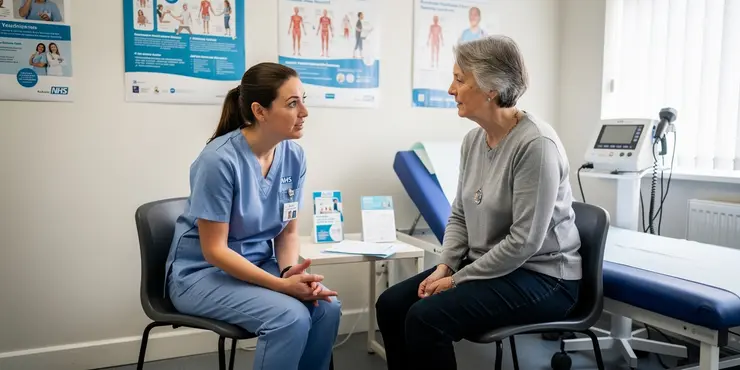
Are vaccines safe?
Relevance: 62%
-
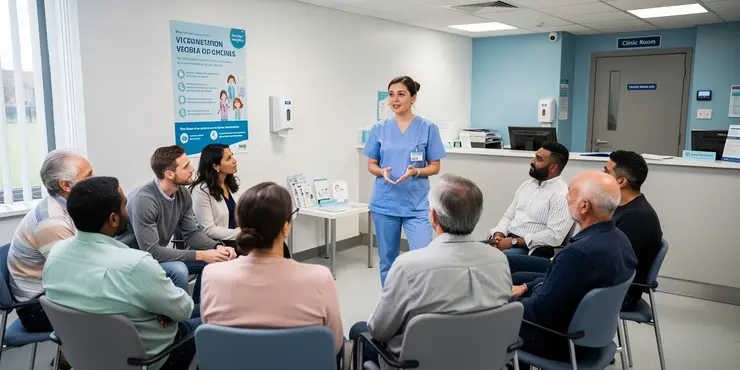
What is a vaccine?
Relevance: 62%
-
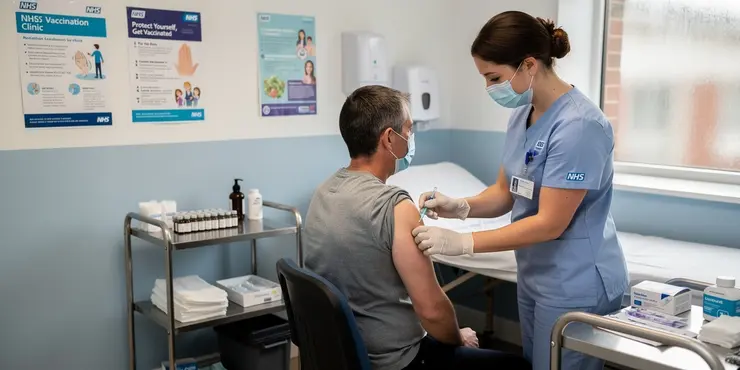
How do vaccines work?
Relevance: 61%
-
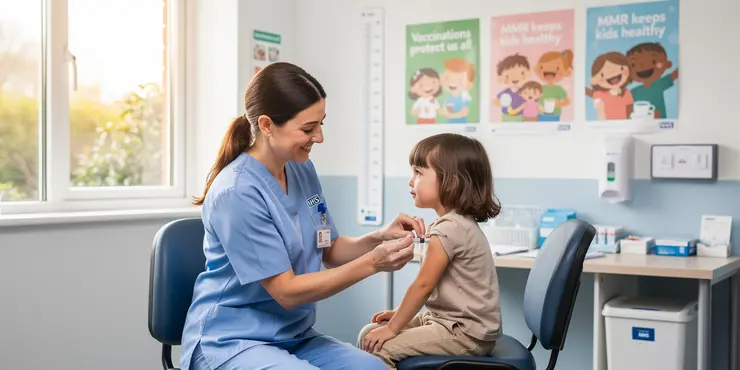
How effective is the MMR vaccine?
Relevance: 60%
-
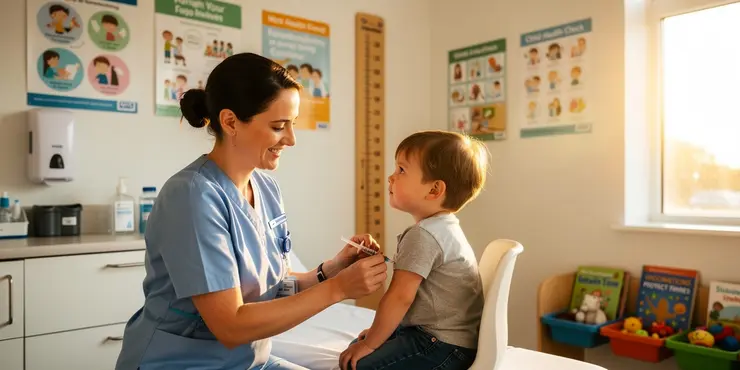
What is a live-attenuated vaccine?
Relevance: 59%
-
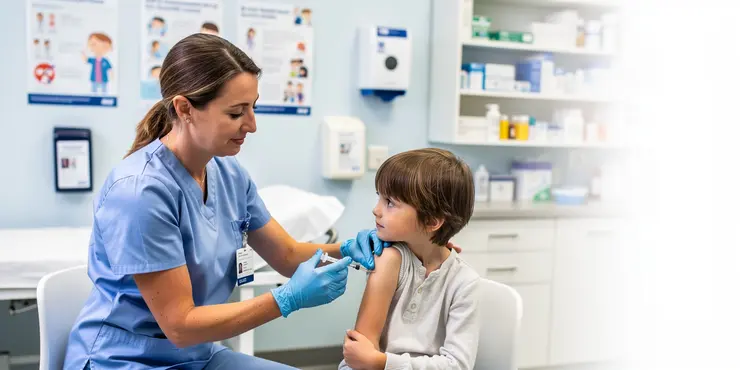
What are vaccines and how do they work?
Relevance: 59%
-
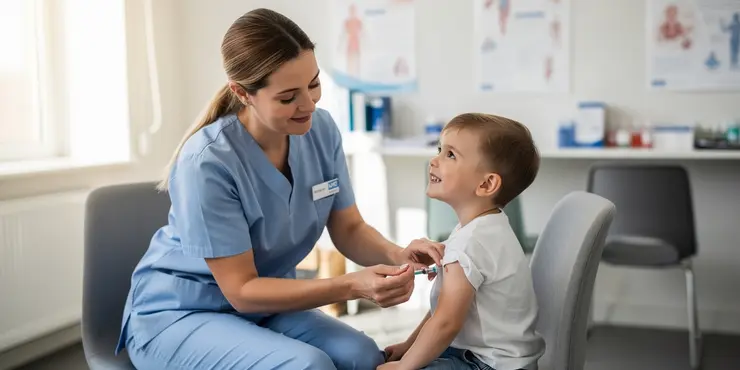
Children's Vaccination Schedule
Relevance: 59%
-
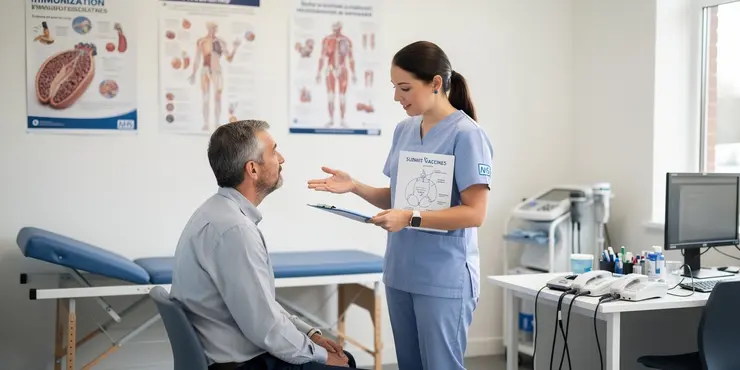
What is a subunit vaccine?
Relevance: 59%
-
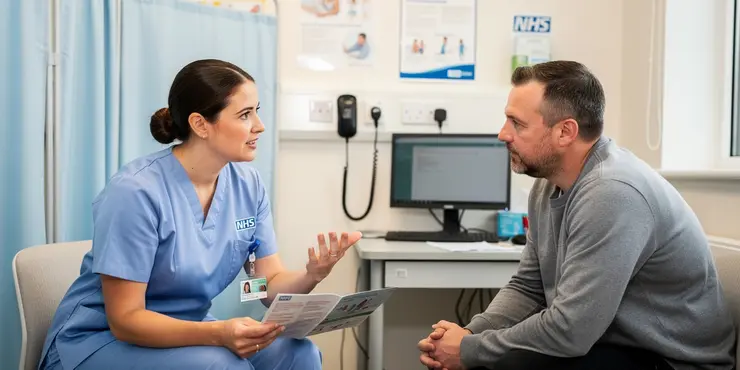
What are the different types of vaccines?
Relevance: 58%
-
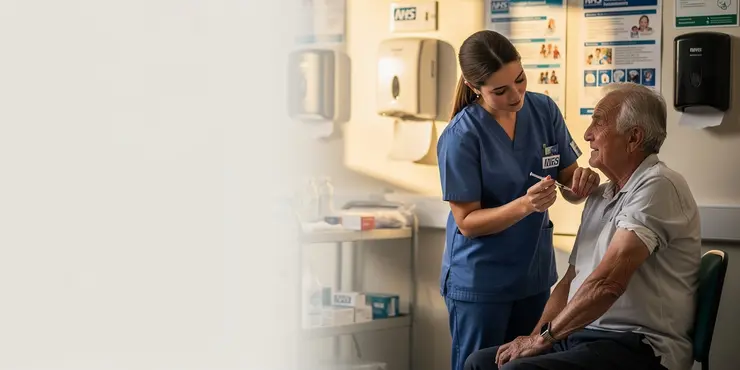
Is there a vaccine for H3N2?
Relevance: 58%
-
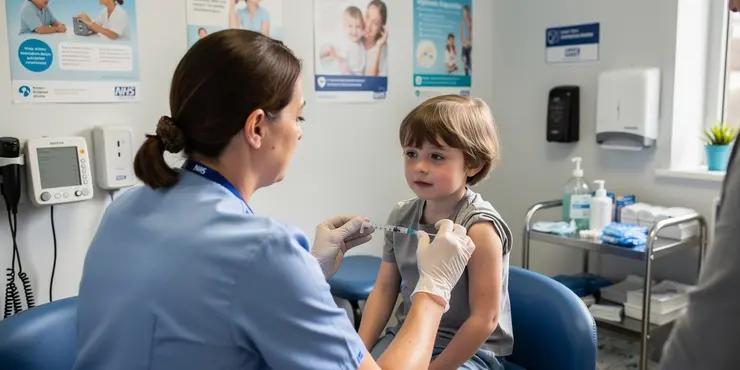
Are there vaccines for meningitis?
Relevance: 57%
-
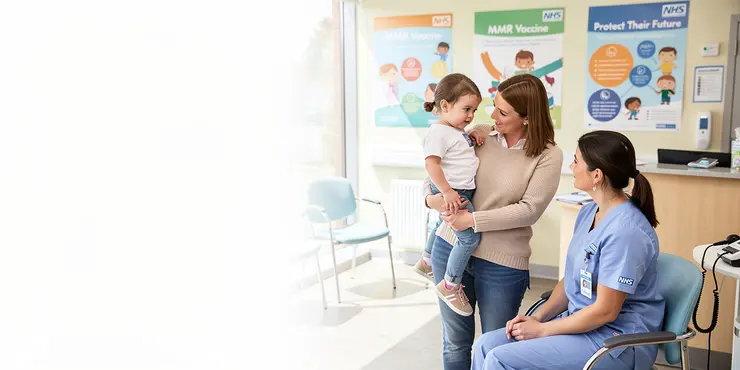
What is the MMR vaccine?
Relevance: 57%
-

Are infants recommended to receive the meningococcal vaccine?
Relevance: 57%
-
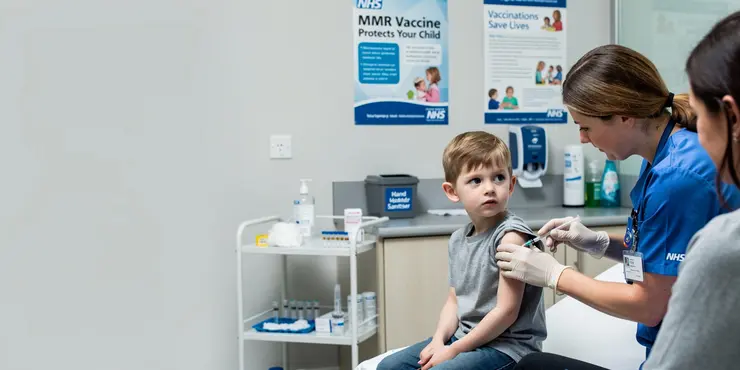
How effective is the MMR vaccine?
Relevance: 57%
-
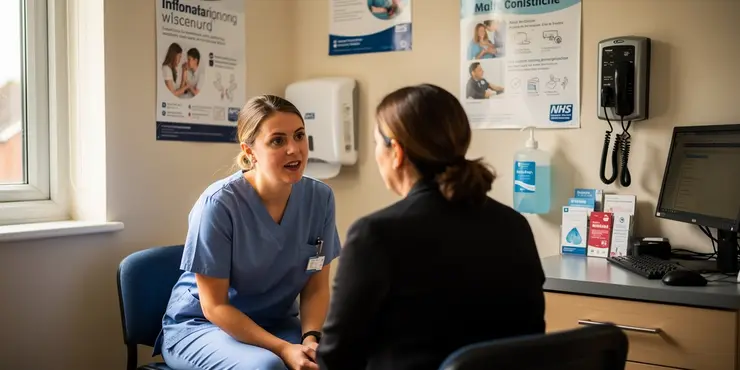
Is there a vaccine for gonorrhoea?
Relevance: 56%
-
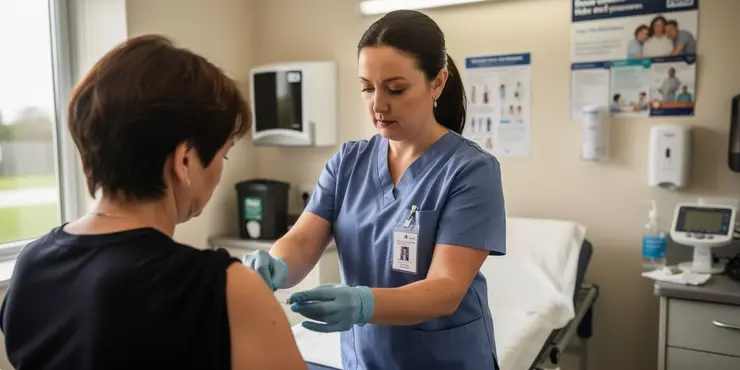
Is there a different recommendation for the MenACWY and MenB vaccines?
Relevance: 56%
-
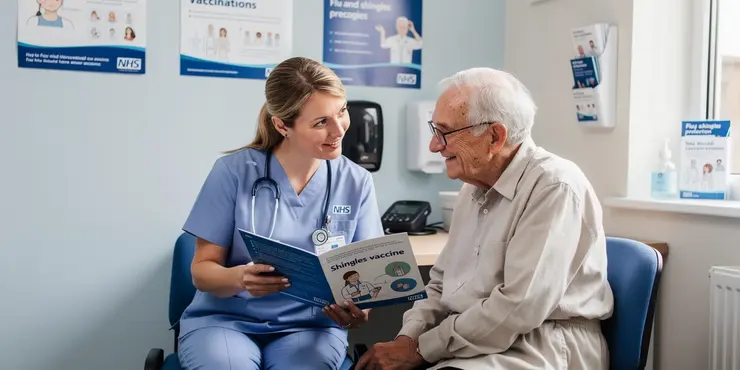
Is the shingles vaccine safe?
Relevance: 56%
-
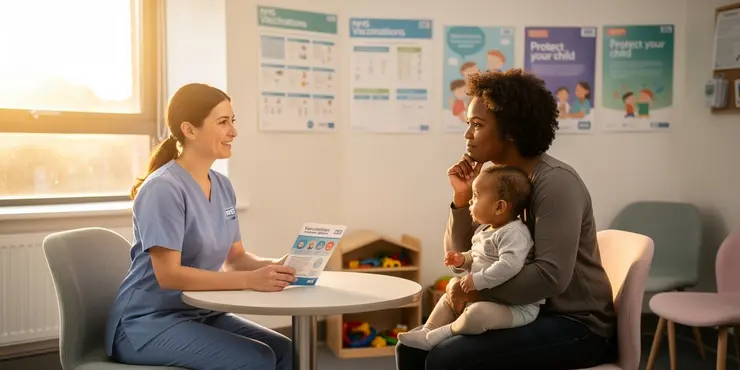
Should I get the chickenpox vaccine?
Relevance: 55%
-
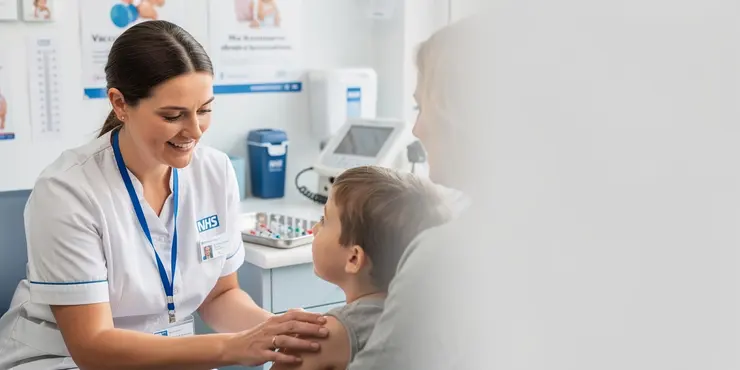
Are vaccines linked to autism?
Relevance: 55%
-
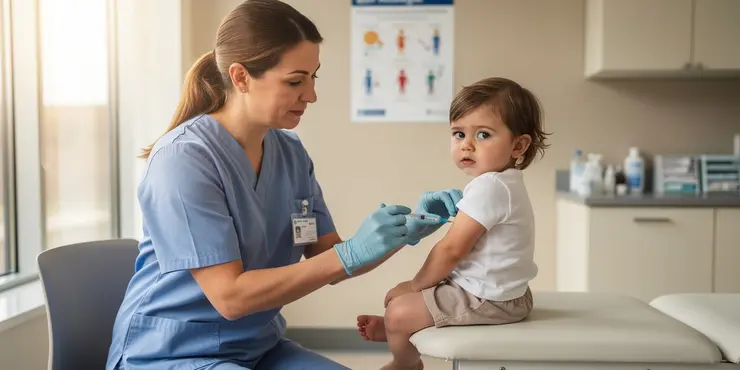
Can everyone receive vaccines?
Relevance: 55%
-
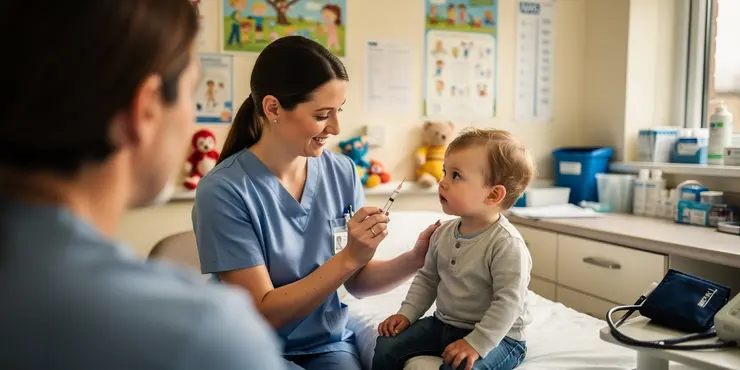
At what age is the MMR vaccine given in the UK?
Relevance: 55%
-

Can pregnant individuals receive the meningococcal vaccine?
Relevance: 55%
-
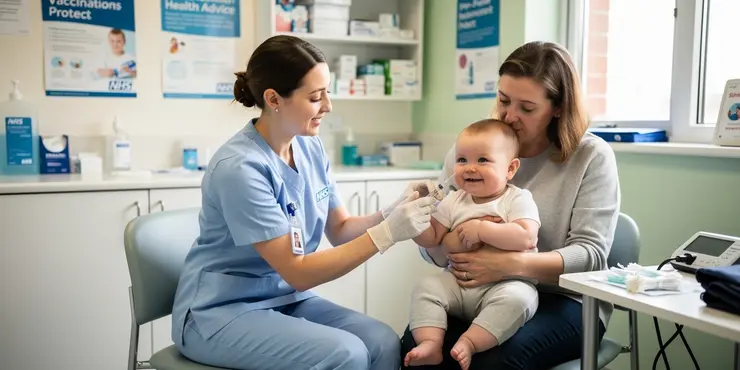
At what age should children receive the meningococcal vaccine?
Relevance: 55%
-
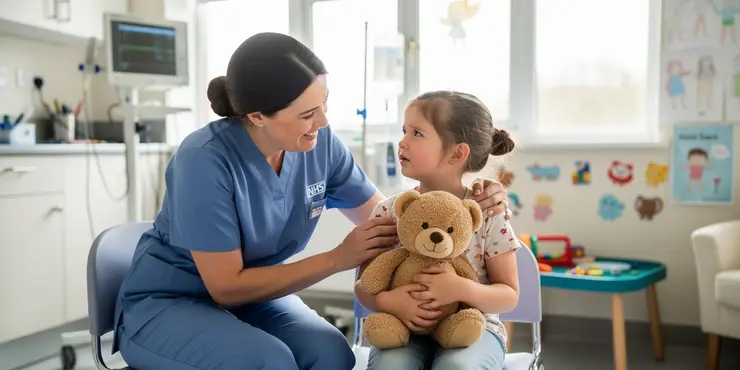
Is there a vaccine for norovirus?
Relevance: 54%
-
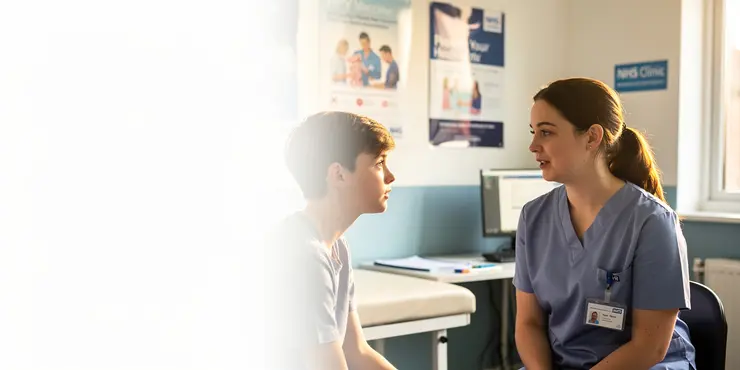
Who should get the HPV vaccine?
Relevance: 54%
-
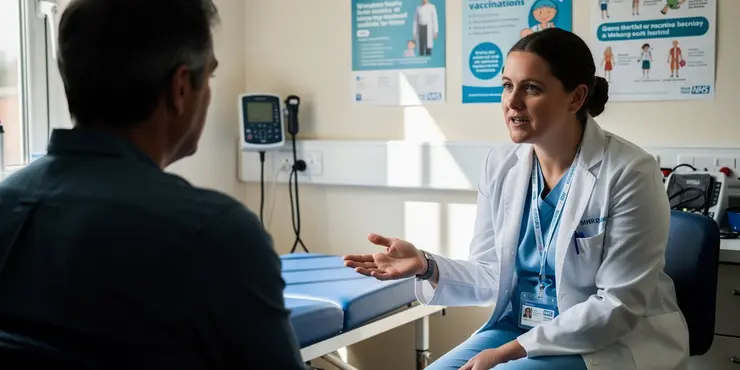
Can adults receive the MMR vaccine?
Relevance: 54%
-
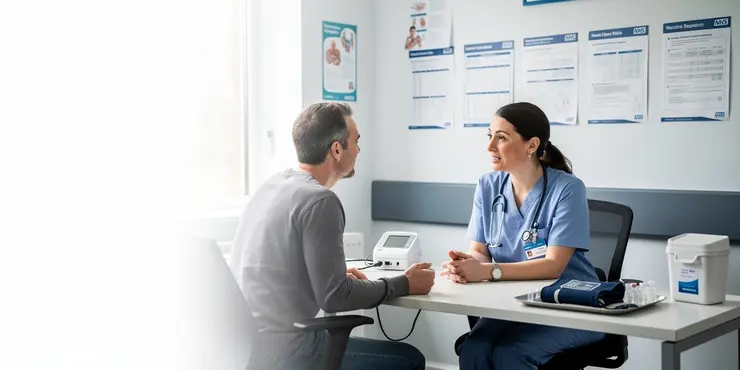
Do vaccines work against new COVID-19 variants?
Relevance: 53%
-
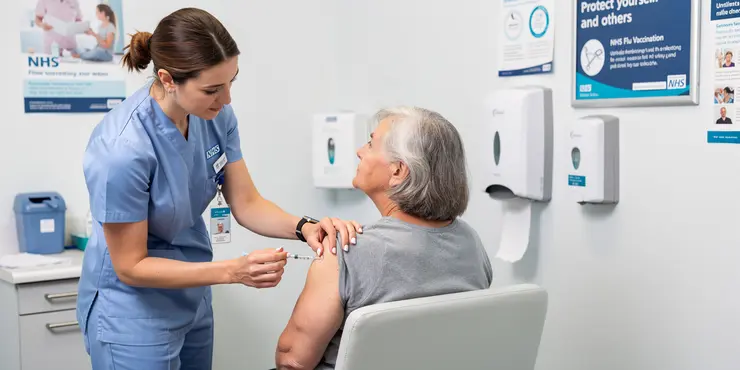
Will getting the flu jab protect me against COVID-19?
Relevance: 53%
-
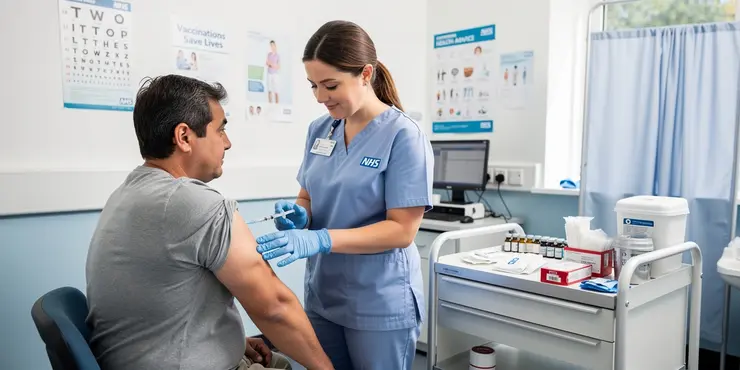
Should health care workers get the meningitis vaccine?
Relevance: 52%
-
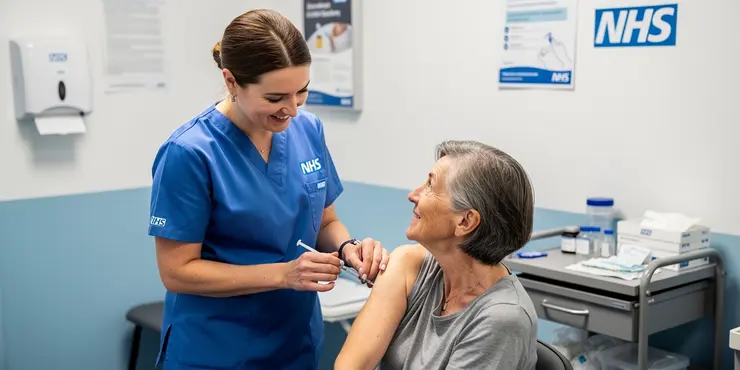
Is there a vaccine for the Zika virus?
Relevance: 52%
-
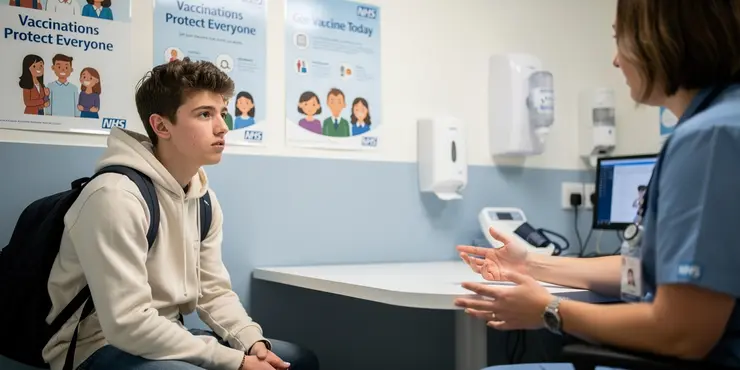
Should college students get the meningitis vaccine?
Relevance: 51%
-
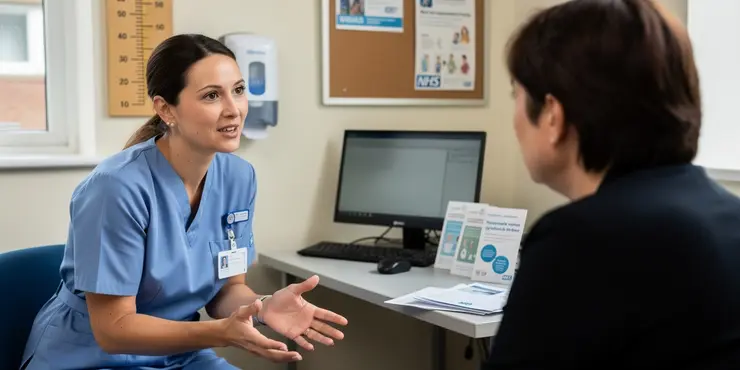
Are there vaccination recommendations for people with compromised immune systems?
Relevance: 51%
-
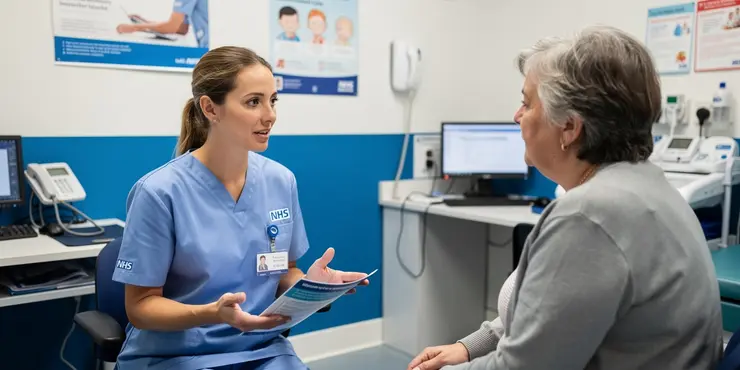
Why do vaccinated people sometimes still get sick?
Relevance: 51%
-
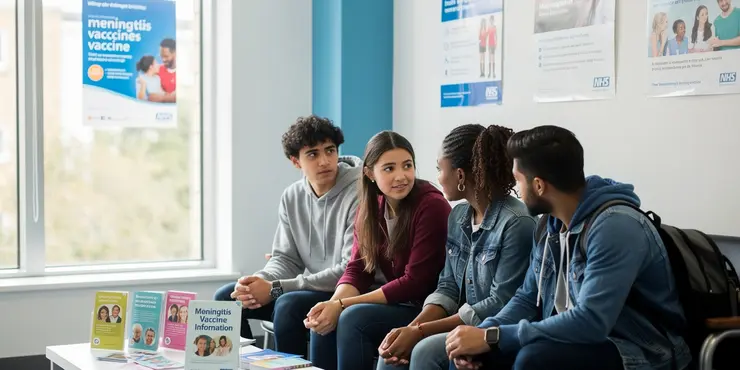
Do international students need the meningitis vaccine?
Relevance: 51%
Introduction to Vaccines and Their Safety
Vaccines have been a cornerstone of public health, providing protection against infectious diseases that have historically caused significant morbidity and mortality. In the UK, vaccination programs are rigorously evaluated to ensure their safety and effectiveness. This leads to an important question often asked by the public: Can vaccines cause the diseases they are designed to protect against?
Types of Vaccines and Their Mechanisms
Vaccines generally work by imitating an infection, triggering the body's immune response without causing the actual disease. There are several types of vaccines, including live attenuated vaccines, inactivated vaccines, subunit, recombinant, polysaccharide, and conjugate vaccines. Each type is designed to expose the immune system to key parts of a pathogen, teaching it to recognize and combat the actual pathogen if encountered later. In the UK, all vaccines must pass strict safety assessments by the Medicines and Healthcare products Regulatory Agency (MHRA).
Live Attenuated Vaccines
Live attenuated vaccines, such as the measles, mumps, and rubella (MMR) vaccine, use a weakened form of the germ that causes the disease. While very effective, they are contraindicated for individuals with weakened immune systems. In rare cases, people may experience mild symptoms resembling the disease. However, these are typically much less severe than the actual disease. In the UK, live vaccines are limited to specific at-risk groups to ensure safety.
Inactivated and Other Non-Live Vaccines
Most vaccines in the UK are inactivated or based on non-live methods, such as the flu vaccine, where the virus is killed, or the meningococcal vaccine, which uses parts of the bacteria. These vaccines cannot cause the disease they protect against. Side effects are typically minor, such as soreness at the injection site or mild fever, but not the disease itself.
Misunderstandings and Myths
Concerns about vaccines causing disease often arise from misunderstandings. It’s crucial to differentiate between mild side effects and actual infection. The UK’s NHS provides clear guidelines and information, dispelling myths and encouraging public confidence in vaccination programs. Adverse effects are meticulously monitored through systems like the Yellow Card Scheme, ensuring vaccine safety and efficacy.
Conclusion
In conclusion, vaccines do not cause the diseases they aim to protect against. The rigorous development and monitoring systems in place in the UK ensure that vaccines are both safe and effective. Public health initiatives and expert communication help address concerns and provide accurate information, encouraging the uptake of vaccines and ensuring community immunity. Vaccination remains one of the most effective measures for protecting public health.
Introduction to Vaccines and Their Safety
Vaccines help keep us safe from diseases. They stop people from getting very sick. In the UK, doctors check vaccines very carefully. People often ask: Can vaccines make us sick with the disease they are meant to stop?
Types of Vaccines and How They Work
Vaccines teach our bodies to fight germs without making us sick. There are different kinds of vaccines like live attenuated and inactivated vaccines. Each kind shows part of a germ to our body so it can learn to fight it later. The UK makes sure all vaccines are safe with careful tests.
Live Attenuated Vaccines
Some vaccines have a weak form of the germ, like the MMR vaccine for measles, mumps, and rubella. These work well but are not for people who are very sick. Sometimes, people may feel a little sick, but not like the real illness. In the UK, these vaccines are for certain groups to keep them safe.
Inactivated and Other Non-Live Vaccines
Most UK vaccines use germs that are killed, like the flu vaccine. These vaccines can’t make you sick with the disease. You might feel a bit of pain where you got the shot or have a small fever, but not the illness itself.
Misunderstandings and Myths
People sometimes worry about vaccines because of misunderstandings. It is important to know the difference between mild side effects and real illness. The NHS in the UK gives clear information to stop myths and help people trust vaccines. Systems like the Yellow Card Scheme look at any side effects to keep everyone safe.
Conclusion
To sum up, vaccines don’t cause the diseases they protect us from. In the UK, they are checked to make sure they are safe and work well. Health experts give the right information to help people feel good about getting vaccines. Vaccines are one of the best ways to keep everyone healthy.
Frequently Asked Questions
Can vaccines cause the diseases they are supposed to protect against?
Vaccines are designed to prevent diseases, not cause them. Inactivated vaccines can't cause the disease they protect against.
Can live attenuated vaccines cause the disease they protect against?
Live attenuated vaccines contain weakened forms of the virus or bacterium, which means they are much less likely to cause the disease. However, people with severely weakened immune systems should consult their doctor before receiving these vaccines.
Is it possible for vaccines to fail and cause the actual disease?
Vaccines do not cause disease failure. They may not work in a small percentage of individuals, but they do not cause the disease themselves.
Could getting vaccinated increase my risk of getting the disease?
Vaccination decreases your risk of getting the disease by preparing your immune system to fight it more effectively.
Can the ingredients in vaccines cause the disease?
The ingredients in vaccines, including antigens, adjuvants, and preservatives, are carefully tested for safety and cannot cause the disease.
How do we know vaccines don't cause the diseases they protect against?
Vaccines undergo extensive clinical trials and rigorous testing to ensure they are safe and effective, including not causing the diseases they target.
Are there any documented cases of vaccines causing disease?
There are no reputable scientific studies showing that vaccines can cause the disease they are meant to prevent.
What about side effects that seem like the disease?
Some vaccines can cause mild symptoms, such as fever or soreness, but these are not the disease itself. They are signs that the immune system is responding.
Can vaccines shed and cause others to get sick?
While live vaccines can very rarely lead to shedding, the amount is typically too small to cause illness in others, and no serious disease transmission has been documented.
Do vaccines cause the diseases they protect against in individuals with weakened immune systems?
People with weakened immune systems should consult their healthcare provider as they may need different vaccine types, but vaccines are specifically designed to prevent these diseases.
Has anyone contracted a disease from a vaccine?
There is no credible evidence of anyone contracting a disease from a properly administered vaccine.
Why do some people think vaccines cause diseases?
Misunderstandings, misinformation, and coincidental timing of illness following vaccination contribute to this belief.
Can vaccines exacerbate existing conditions and lead to disease?
Vaccines are generally safe and do not exacerbate existing conditions to the point of causing disease.
Is there a scientific basis for vaccines causing disease?
There is no scientific basis or evidence supporting the idea that vaccines cause the diseases they are meant to protect against.
What if I or my child gets sick after vaccination?
Most post-vaccination symptoms are minor and temporary, such as a mild fever, and are not the disease itself.
Is there a risk of developing a milder form of the disease from vaccination?
In very rare cases with live attenuated vaccines, a milder form of the disease might occur, but this is exceedingly uncommon.
Are there specific vaccines more likely to cause the disease they protect against?
No vaccines are known to cause the disease they are intended to prevent; all licensed vaccines are extensively tested for safety.
Why do symptoms appear after vaccination?
Symptoms after vaccination often indicate that the immune system is responding and building protection against the disease.
Do vaccines contain the live virus that could cause disease?
Only live attenuated vaccines contain live virus, but it is weakened and does not cause the full-blown disease.
Can vaccines mutate and cause disease?
Vaccines are formulated to be stable and there is no evidence that they mutate and cause disease.
Do vaccines give you the diseases they are meant to stop?
Vaccines help stop you from getting sick. They do not make you sick. Vaccines that are not alive cannot give you the sickness they protect you from.
Can live vaccines make you sick with the disease they prevent?
Live vaccines use weak germs to stop you from getting sick. But they almost never make people sick with the disease.
Doctors make sure these vaccines are very safe.
If you are worried, it's good to talk to a doctor or nurse. They can help you understand.
Live vaccines have weak germs in them. These germs are not strong and don't make you sick. But, people who are very sick or have weak bodies should talk to their doctor before getting these vaccines.
Can a vaccine not work and make you sick?
Vaccines help keep us healthy, but sometimes they might not work. This is very rare.
Vaccines are made to protect us from getting sick, not to make us sick. Sometimes, our bodies might not react the way we want.
If you have trouble reading, you can ask someone to read with you. You can also use tools that read words out loud to help understand better.
Vaccines do not make you sick. They might not work for everyone, but they don’t cause the illness.
Can the vaccine make me sick with the disease?
No, the vaccine helps protect you. It teaches your body to fight the disease.
If you are unsure, ask a doctor or nurse. Reading with someone you trust can help, too.
Getting a vaccine helps protect you from getting sick. It teaches your body how to stay strong against the illness.
Can you get sick from what's in vaccines?
Vaccines have ingredients that help protect you. Some people worry that these ingredients might make you sick with the same disease. But vaccines are made to keep you safe and healthy.
If you find it hard to read, you can ask someone to help you understand. You can also use tools like audiobooks or reading apps that read the words out loud for you.
Vaccines have special ingredients like antigens, adjuvants, and preservatives. These are tested to make sure they are safe. They do not make you sick.
How do we know vaccines are safe and do not give us the disease?
Vaccines are like shields that help protect our bodies from getting sick. Scientists make vaccines very carefully. They test them a lot to make sure they are safe. When we get a vaccine, it teaches our body to fight germs without making us sick.
Here are some ways to understand vaccines better:
- Talk to a doctor: They can answer questions and explain how vaccines work.
- Use simple pictures: Books and videos with pictures can help show what vaccines do.
- Ask questions: If anything is confusing, it is good to ask someone for help.
Doctors and scientists work hard to make sure vaccines are safe. They test them a lot to make sure they work and don’t make you sick.
Can vaccines make you sick?
Sometimes people ask if vaccines can make you sick. Vaccines are made to protect you from getting sick. But, very rarely, a vaccine might make someone sick instead of helping them. Most people do not get sick from vaccines.
If you have questions or are worried, it's a good idea to talk to a doctor or nurse. They can give you more information and help you understand.
Scientists have studied vaccines very carefully. They have not found any good evidence that vaccines can make you sick with the disease they are supposed to stop.
What if the side effects feel like the sickness?
Some vaccines might make you feel a little unwell, like having a fever or a sore spot where you got the shot. This doesn't mean you caught the sickness. It means your body is getting ready to fight germs.
Can vaccines make other people sick?
When you get a vaccine, it helps protect you from getting sick. Vaccines do not make other people sick. They do not spread germs to people around you. If you have questions about vaccines, it is good to talk to a doctor or nurse.
Live vaccines might sometimes spread a tiny bit of virus, but it is usually not enough to make anyone sick. There have been no reports of serious illnesses spreading this way.
Can people with weak bodies get sick from the vaccines?
Some people have weak bodies that make fighting germs hard.
Most vaccines are safe for them, but they should ask their doctor.
Vaccines help stop sickness but talk to a doctor if worried.
Use simple books or talk with a nurse for more help.
People who get sick easily should talk to their doctor. They might need different vaccines. Vaccines help stop people from getting sick.
Can a vaccine make you sick?
Vaccines help keep us healthy. They protect us from getting sick. Some people wonder if they can get a disease from a vaccine. This is very rare. Vaccines are tested to make sure they are safe.
If you find reading hard, you can ask someone to help you understand. You can also use tools like voice readers to read the text out loud.
Scientists say that vaccines, when given the right way, do not cause diseases. There is no proof that they make people sick.
Why do some people worry about vaccines making them sick?
Some people get worried because they hear stories that say vaccines might make people sick. These stories often come from things people see or read online. Sometimes, the stories are not true or are confusing. This can make people feel scared about vaccines.
If you have questions or feel worried, it can help to talk to a doctor or nurse. They can give you clear and true information.
Here are some ways to understand better:
- Ask someone you trust to explain things.
- Look at pictures or videos about how vaccines help us.
- Use apps that help read or show information in a simple way.
Some people think vaccines make you sick because of a few reasons.
Sometimes, there are mistakes or wrong information.
Other times, you might just get sick after a vaccine by chance. It's not the vaccine's fault.
These things together make people worry about vaccines.
Can vaccines make some health problems worse or cause disease?
Vaccines are medicines that help stop you from getting sick. They are usually safe and help protect us. But sometimes, they might make an existing health problem seem worse. This doesn’t happen often.
If you have health problems, talk to your doctor before getting a vaccine. They can tell you what is best for you.
Using pictures or videos can help explain how vaccines work. Asking questions is always a good idea if you do not understand something.
Vaccines are usually safe. They do not make health problems worse or cause new diseases.
Do vaccines make people sick?
Scientists have not found any proof that vaccines make people sick with the diseases they are meant to stop.
What should I do if I or my child feels sick after the vaccine?
If you or your child feels sick after getting the vaccine, it is important to stay calm. Many people feel a bit unwell after a vaccine. This is normal.
Here are some simple steps you can take:
- Rest: Take it easy and get plenty of sleep.
- Drink Water: Have lots of water to stay hydrated.
- Eat Healthy: Eat light meals to help your body feel better.
- Pain or Fever: If needed, you can take medicine like paracetamol to help with pain or fever. Speak to your doctor or pharmacist if you are not sure.
If you are worried or if the symptoms do not get better, it is a good idea to talk to a doctor or healthcare worker.
After getting a vaccine, some people might feel little symptoms like a mild fever. These feelings are usually not strong and do not last long. They are not the actual sickness.
Can getting a vaccine make me a little bit sick?
Sometimes, when people get a special type of vaccine, they might get a tiny bit sick, but this doesn't happen very often.
Can some vaccines cause the sickness they should stop?
Vaccines help keep us healthy by stopping diseases. Sometimes people worry if a vaccine could make them sick with the disease it should stop. This is very rare.
Most vaccines use parts of a dead or weak germ, which is safe and helps the body learn to fight the germ.
If you have questions about vaccines, it is good to ask a doctor or nurse. They can help you understand more.
Use picture books, videos, or ask someone you trust to explain it to help learn about vaccines.
Vaccines do not give you the disease they are meant to stop. All vaccines are checked very well to make sure they are safe.
Why do we feel unwell after getting a vaccine?
Sometimes, after a vaccine, you might not feel very well. This is normal and means the vaccine is working. It helps your body get ready to fight germs.
Here are some things that can help:
- Rest: Take it easy and get plenty of sleep.
- Water: Drink a lot of water to stay hydrated.
- Help: Tell an adult how you feel.
Ask a doctor if you feel very unwell. They can help you feel better.
After you get a vaccine, your body might feel different. This is a sign that your body is getting ready to fight the disease.
Do vaccines have the live germ that can make you sick?
Some vaccines have weak germs. These germs won't make you very sick. They will help your body learn how to fight them.
Can vaccines change and make us sick?
Vaccines help protect us from getting sick. Some people worry if vaccines can change and hurt us. Here is some easy information. - **Vaccines are safe:** Doctors check them carefully to make sure they don't make us sick. - **Vaccines don't usually change:** They are made in a way that stays the same. If you feel worried, talk to a doctor or nurse. They can explain more to help you feel better.Vaccines are made to stay the same, and there is no proof that they change and make people sick.
Useful Links
This website offers general information and is not a substitute for professional advice.
Always seek guidance from qualified professionals.
If you have any medical concerns or need urgent help, contact a healthcare professional or emergency services immediately.
Some of this content was generated with AI assistance. We’ve done our best to keep it accurate, helpful, and human-friendly.
- Ergsy carfully checks the information in the videos we provide here.
- Videos shown by Youtube after a video has completed, have NOT been reviewed by ERGSY.
- To view, click the arrow in centre of video.
- Most of the videos you find here will have subtitles and/or closed captions available.
- You may need to turn these on, and choose your preferred language.
- Go to the video you'd like to watch.
- If closed captions (CC) are available, settings will be visible on the bottom right of the video player.
- To turn on Captions, click settings .
- To turn off Captions, click settings again.
More Items From Ergsy search
-

Can vaccines cause the diseases they protect against?
Relevance: 100%
-

Is there a vaccine for Lyme disease?
Relevance: 80%
-

Do vaccines protect against the Stratus variant?
Relevance: 73%
-

Are any vaccines available in the UK for mosquito-borne diseases?
Relevance: 72%
-
Does the flu vaccine protect against COVID-19?
Relevance: 71%
-

Why are vaccines important?
Relevance: 64%
-

Are vaccines safe?
Relevance: 62%
-

What is a vaccine?
Relevance: 62%
-

How do vaccines work?
Relevance: 61%
-

How effective is the MMR vaccine?
Relevance: 60%
-

What is a live-attenuated vaccine?
Relevance: 59%
-

What are vaccines and how do they work?
Relevance: 59%
-

Children's Vaccination Schedule
Relevance: 59%
-

What is a subunit vaccine?
Relevance: 59%
-

What are the different types of vaccines?
Relevance: 58%
-

Is there a vaccine for H3N2?
Relevance: 58%
-

Are there vaccines for meningitis?
Relevance: 57%
-

What is the MMR vaccine?
Relevance: 57%
-

Are infants recommended to receive the meningococcal vaccine?
Relevance: 57%
-

How effective is the MMR vaccine?
Relevance: 57%
-

Is there a vaccine for gonorrhoea?
Relevance: 56%
-

Is there a different recommendation for the MenACWY and MenB vaccines?
Relevance: 56%
-

Is the shingles vaccine safe?
Relevance: 56%
-

Should I get the chickenpox vaccine?
Relevance: 55%
-

Are vaccines linked to autism?
Relevance: 55%
-

Can everyone receive vaccines?
Relevance: 55%
-

At what age is the MMR vaccine given in the UK?
Relevance: 55%
-

Can pregnant individuals receive the meningococcal vaccine?
Relevance: 55%
-

At what age should children receive the meningococcal vaccine?
Relevance: 55%
-

Is there a vaccine for norovirus?
Relevance: 54%
-

Who should get the HPV vaccine?
Relevance: 54%
-

Can adults receive the MMR vaccine?
Relevance: 54%
-

Do vaccines work against new COVID-19 variants?
Relevance: 53%
-

Will getting the flu jab protect me against COVID-19?
Relevance: 53%
-

Should health care workers get the meningitis vaccine?
Relevance: 52%
-

Is there a vaccine for the Zika virus?
Relevance: 52%
-

Should college students get the meningitis vaccine?
Relevance: 51%
-

Are there vaccination recommendations for people with compromised immune systems?
Relevance: 51%
-

Why do vaccinated people sometimes still get sick?
Relevance: 51%
-

Do international students need the meningitis vaccine?
Relevance: 51%


